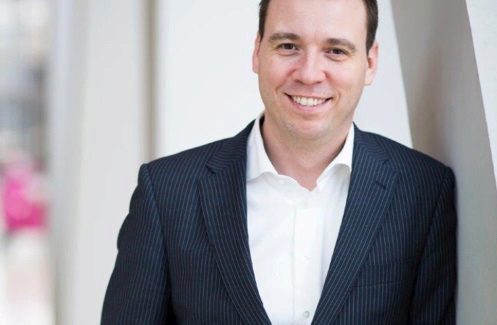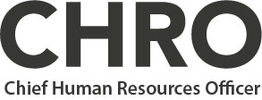Marc Huppertz, T-Mobile Netherlands: Network leadership is the way to go

After successfully introducing a shared services centre, harmonising labour policies at T-Mobile Netherlands and after the acquisition of Orange Mobile Netherlands, HR Director Marc Huppertz is not shying away from new big projects. He is introducing a network leadership structure, creating ‘self-steering teams’ and reshaping HR for the modern age, including a new way of workforce planning and cultural development. In this exclusive interview with CHRO.nl Huppertz chats about his experience and elaborates on his vision for HR in the future.
Huppertz is a seasoned HR practitioner with 16 years of experience, the last seven of which have been at T-Mobile Netherlands. The Netherlands office has 1,500 employees and is part of the T-Group’s European footprint, which comprises 12 countries. “We have a very high share of the revenues we bring in, so we are an important asset for the European region,” Huppertz says. He adds that the company’s (third largest) position in the local mobile market presents certain challenges. “Therefore we need to constantly look at our efficiency and natural urge to be innovative and creative with our people and financial resources. This is where HR plays a vital role.”
Fresh beginnings
Huppertz has seen significant change since joining the company, much of which he implemented. “In 2008 Orange Mobile Netherlands was taken over by T-Mobile Netherlands. I managed the harmonisation of labour policies and ensured that the whole job mapping and reshape was smooth. I set up the new shared services centre in the Netherlands – because that concept did not exist in T-Mobile Netherlands, but had existed at Orange Netherlands. The board here liked it so much they wanted it set up.”
“I did this in parallel with harmonising the labour policies and integrating the two companies. The shared services centre had very clear processes and paths to HR on the personnel side. Our biggest focus was workforce management. It was hugely successful at Orange, so we did it again at T-Mobile. I was also responsible for ensuring we transformed HR towards a European footprint.”
A new leadership style
According to Huppertz, research the company undertook in recent years led to a decision to get transformational goals set up and running, which meant the organisation needed to change its structure and hierarchies and move towards network leadership. Huppertz says the company has typically followed a “command and control” style of leadership, but is ditching this in favour of network leadership. “This is a two-year journey that will change our culture,” he says.
Going forward, teams will be transformed to customer-centric value streams. Potentially, teams will grow bigger and the distance to traditional management will extend in order to clearly head for a more autonomous and mature employee, he adds. “This will not be easy, because with a so-called network leadership, each (new) manager needs to know what is expected of him or her. So we are doing it at the same time as a reshape – disbanding layers to speed up the process of change,” he says. The Netherlands is one of the first countries of the 12 making this change in leadership style. “When we are successful in rolling it out here, we will extend it to other companies of the European region,” Huppertz says.
When asked what sort of leader he is himself, Huppertz answers: “I’m quite strong in situational leadership. My personal style is democratic. I believe in empowering the experts in my team so I expect very high maturity in their roles, and responsibility in the areas they work in.”
The changing role of HR, and its future
Huppertz believes that while the role of HR is ever-evolving, it certainly has a place in businesses of the future. “There was a lot of discussion over the last few years about the diminishing role of HR. Things were outsourced, automated, centralised, made redundant and so on,” he says. “Leadership development, network leadership, changing labour policies – this is the core we need to move towards. Transformation for HR is key. We need to help the company transform towards the 21st century, because the environment is changing so rapidly. Start-ups are coming up so fast and are so agile that we, as bigger companies, need to transform ourselves to shorten our times to market and make our decision cycles very short.”
While talent management has always been an important topic, Huppertz says that it will become even more prominent going forward. Together with his team and the board, Huppertz is currently rewriting the job profile of both a talent and a leader, as he says talented individuals fall into different hierarchies. “We are currently developing a new programme because when we want to work towards self-steering teams with a high demand on empowerment. It’s not an easy task to do,” he says.
Over and above this, Huppertz feels that the future of HR will be about workforce planning: “Tactical and strategic workforce planning, cultural development, leadership development and transformation. We need to ensure we manage that accordingly. There are many companies out there with more traditional HR policies, which still need to work on establishing shared services centres. It depends on the phase that the company is in.”
Within T-Mobile Netherlands, Huppertz says the focus is currently on reshaping the company, and as part of that, reshaping HR. “We will concentrate on our core points – workforce planning, leadership planning and cultural development,” he says. “We want to move towards a more agile way of working, with network-leading principles that we will instil here within two years. It’s quite a journey because it combines traditional management with a different way of thinking, so there are political dynamics that the team and I need to manage. There are certain mindsets we are trying to shift – across the board, for the whole company.”













